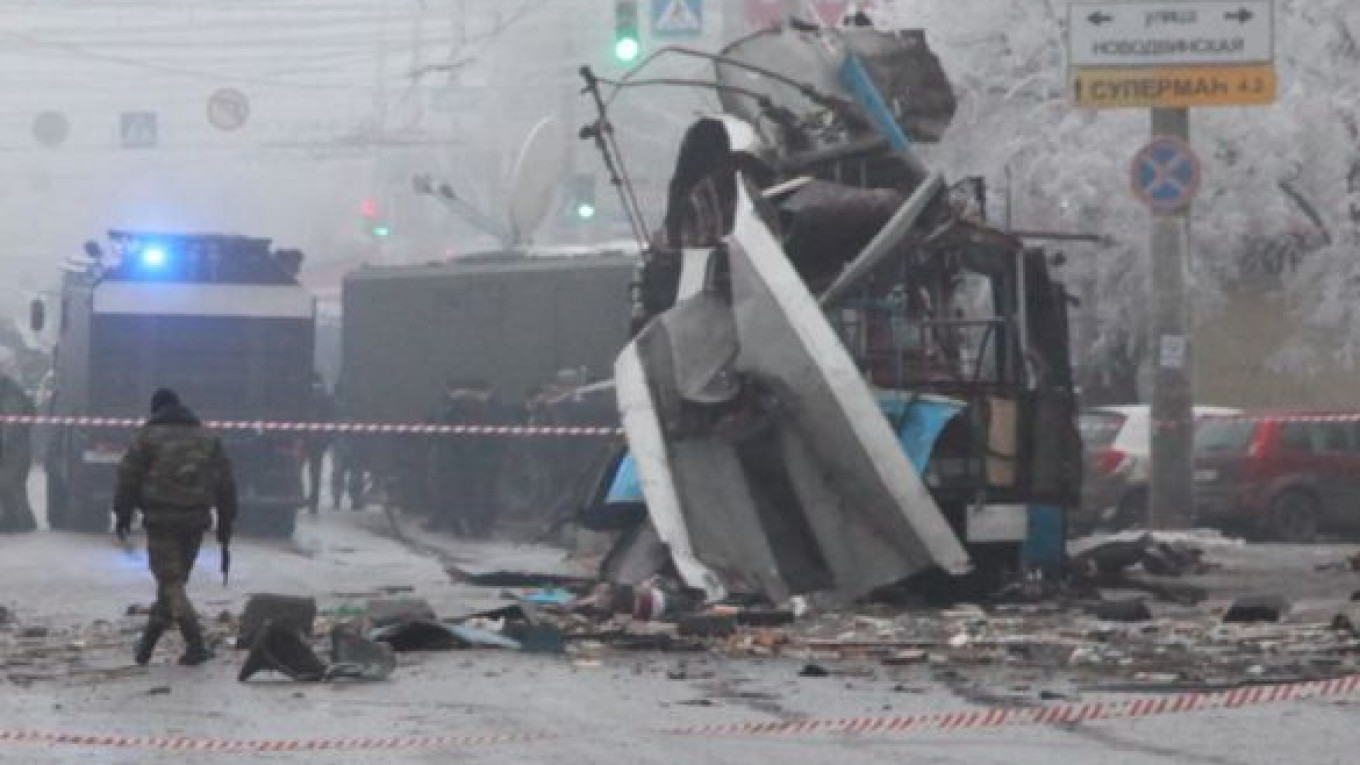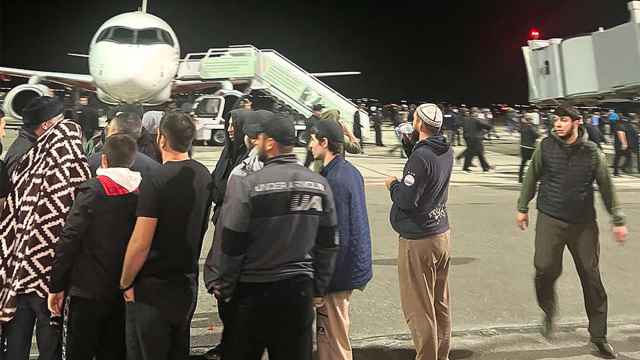Russia has identified two suicide bombers responsible for attacks that killed 34 people in the city of Volgograd last month and arrested two suspected accomplices in the violence-torn Dagestan republic, officials said Thursday.
The National Anti-Terrorism Committee said the bombers, whose attacks raised fears of further violence before the Sochi Winter Olympics next week, were members of a militant group in Dagestan in the restive North Caucasus.
A bombing at the railway station in Volgograd on Dec. 29 was followed a day later by a blast that ripped apart a trolleybus in the city 700 kilometers northeast of Sochi, where the Olympics start on Feb. 7.
The blasts were the deadliest attacks in Russia outside the North Caucasus, the cradle of an Islamist insurgency whose leader has urged fighters to prevent the Olympics going ahead, since a bomber killed 37 people at a Moscow airport in 2011.
The head of security for the Olympics issued Russia's latest assurance about security at the Sochi Games, a major prestige project for President Vladimir Putin, saying there was "no concrete threat."
The Anti-Terrorism Committee identified the Volgograd bombers as Asker Samedov and Suleiman Magomedov, called them members of the "Buinaksk Terrorist Group" and said it had known their names for some time. Buinaksk is a city in Dagestan.
Two brothers suspected of helping send the bombers to Volgograd were detained in Dagestan on Wednesday, the committee also said. It identified them as Magomednabi and Tagir Batirov and said the investigation was continuing.
Investigators initially said a woman was suspected of carrying out the railway station bombing.
Buinaksk is the site of the first of four deadly apartment building bombings in September 1999 that were a catalyst of Russia's second post-Soviet war against separatists in Chechnya, adjacent to Dagestan.
As prime minister at the time, Putin headed up the war, which helped shape his image as a strong leader and ensure his election the following year after Boris Yeltsin resigned and made him acting president.
A Message from The Moscow Times:
Dear readers,
We are facing unprecedented challenges. Russia's Prosecutor General's Office has designated The Moscow Times as an "undesirable" organization, criminalizing our work and putting our staff at risk of prosecution. This follows our earlier unjust labeling as a "foreign agent."
These actions are direct attempts to silence independent journalism in Russia. The authorities claim our work "discredits the decisions of the Russian leadership." We see things differently: we strive to provide accurate, unbiased reporting on Russia.
We, the journalists of The Moscow Times, refuse to be silenced. But to continue our work, we need your help.
Your support, no matter how small, makes a world of difference. If you can, please support us monthly starting from just $2. It's quick to set up, and every contribution makes a significant impact.
By supporting The Moscow Times, you're defending open, independent journalism in the face of repression. Thank you for standing with us.
Remind me later.






